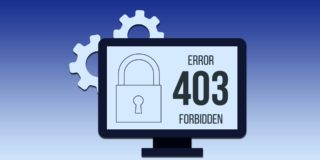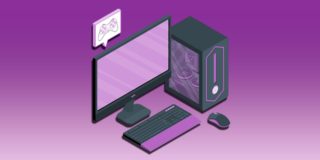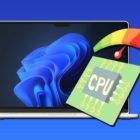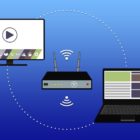Why Use Linux?
The other day I got into a somewhat heated discussion about why Linux is a viable alternative desktop OS. Despite my best efforts, I was unable to move the other side past the rhetoric and myths that seem to surround Linux. It is because of this discussion that I am writing this…as a way to give accurate information. Let’s start by looking at some of the most common myths.
Myth 1: “Linux is hard to install”
This could not be further from the truth. Many Linux distributions are as easy, if not easier. to install as Windows. Ubuntu, Linux Mint and PCLinuxOS are but three of the most popular. The install is nothing more than a few mouse clicks and basic options like timezone, language and name. All these are explained well and you need to provide the same information when installing ANY operating system.
Myth 2: “Linux does not recognize my hardware”
Like all Operating Systems, Linux requires “drivers” in order to use a piece of hardware like a sound card or modem, etc. Also like other OSs, if your system is cutting edge with the latest and greatest, there may be challenges at first. This doesn’t happen with Microsoft Windows? A year after it’s release, Windows VISTA is still suffering from poor driver support! The fact is, if your system is 6 months old, hardware support is usually a non-issue.
Myth 3: “Linux is too complicated to use”
In what way? It has a graphical interface with a mouse and windows. It has an auto-updater to keep things current. It has software add/remove capabilities that allow you to install programs with a couple mouse clicks. It even has many apps found in Windows and Mac OS X like Firefox, Thunderbird, Pidgin, Audacity, etc. It’s as easy as Windows…just different. Let’s put it this way, if all you ever knew was Linux and you decided to try Windows for the first time, I’m sure you would find Windows complicated and hard to use too.
Myth 4: “There are no applications available”
One of the points thrown at me during my discussion went something like, “Walk into a computer store and try to find a single Linux app on the shelf…you won’t find any”. Until now I’m not sure what that had to do with anything. There are many thousands of applications available, for free, and are readily available for download. Many Linux distros even come with a point and click interface to download and install these apps without effort. To say there are no applications available is not only a myth but a flat out lie.
Some reasons to use Linux
There are many more “myths” hanging over Linux, but those were some of the more common ones. Let’s now look at a few reasons why one should consider Linux.
Reason 1: Security
Viruses are less of a threat on Linux. The very way a Linux system is designed makes it very difficult for a virus to function as it does in Windows. This also applies to spyware, malware, etc. The fact that almost no viruses are written for Linux also adds a nicer sense of warmth. Wouldn’t be nice to read the almost endless stream of security holes in Windows and know it does not apply to you?
Reason 2: Updatability
Linux is in a constant state of development and improvement by professional and semi-professional developers who donate their time and skills to the various projects. In addition, the majority of the system and available applications are Open source, so if you wish and you had the ability, you could add any feature you needed. Linux also has the ability to expand the life of many systems as it’s reduced overhead and need for system resources means that it will run great on older machines.
Reason 3: Support
Yes, support. As hard as it is to accept, you can easily get support when you do run into difficulties. In addition to the plethora of online forms, both independant and those provided by the distro supplier, there are also more and more 3rd party service providers that offer service contracts for Linux systems. Good to have in a corporate/business environment. There is also support offered by more and more traditional Technology names such as Dell, IBM, Novell, Sun and others. And finally, for support a little closer to home, most major cities have Linux User Groups that can and do offer help and advice. Help and Support IS available and does not usually mean spending hours on hold to speak to someone in a call center on the other side of the planet.
Reason 4: Self-improvement
Personally, this is one of the most important reasons why I switched. Linux gave me the chance to learn new skills, gain deeper insights into how computers work and provided an excellent platform to develop on. Some people may be satisfied with going through life with blinders on and living the “status-quo”. For those that enjoy the how/what/why of life, Linux is an excellent choice.
Reason 5: Cost
Most people would put this at the top of the list. For me, cost is one of the least important reasons to switch to Linux. However, the cost advantage of Linux is huge. In a nutshell, you get the complete OS, thousands upon thousands of applications AND support for the grand total price of….$0! We’re not talking a watered down, feature deprived OS either…we’re talking a full-blown, complete, enterprise ready OS…for free. “But my time is worth something and the extra effort needed with Linux cost me money.”, alright…and how much does it cost you when Windows bluescreens in the middle of editing a large report that hasn’t been saved? Or how about when a virus or spyware prevents you from even using your system…probably costs you a lot.
So you see, you are going to hear a lot about why you should not use Linux, and they are going to give you many reasons why you shouldn’t…just very few good reasons.
If you are interested in trying Linux, I would recommend Ubuntu, Linux Mint or PCLinuxOS. Download their LiveCDs. Booting to a LiveCD allows you to try and use a complete Linux environment without making any changes to your hard drive. Once down, just reboot and go back into windows as normal.


















30 thoughts on “Why Use Linux?”
I’m lucky to know most OS’s inside and out, and I still always come back to Windows because it is the best. The vast majority of people will always use it, and they are getting more and more savvy about the virii that disgruntled Linux crackers love to create for the so called hated Microsoft. But you had your chance, you could have beaten Microsoft back in the day but you blew it due to fragmentation and an inability to learn about consumerism. Freedom is one thing, stupidity and ignorance of your end user is another, and you failed totally.
I forsee a future where Linux is still hovering around the 1% mark five years from now. Pity, you could have had a decent OS, but now you only have an ‘also ran’.
I disagree. It is more like chopping off an inflamed appendix, one that is ready to burst and you are constantly shoveling money into to keep it “healthy.” For every application I use on Windows I can find an open source alternative in Linux.
I run windows without any anti-virus, and have done so for years. I never have problems with any form of malware and in the rare situation where I do, I react and remove it almost instantly (Malwarebytes’ anti-malware will pick up anything I miss). I consider myself the human anti-virus and am so in-tune with my PC that I know almost instantly when changes I’m not aware of are made to it. I don’t have any formal computer education, I’m just a guy with some common sense.
Anyways, I was interested in running linux on a second partition and that’s why I read this.
The majority of malware is written using OS independent scripts, moreover, the majority of infections are drive-by infections. A user visits a malicious page and it installs the malicious code. As an IT Security person taking care of over 500 Linux systems we get plenty of infected systems.
Generally infections are not based on OS type, but rather they are caused by bad user habits. If the user has bad browsing habits, then it does not matter what OS they are using they will be infected sooner or later. Users tend to “choose” to install the infection. If you are going to your parents or friends house once a month to clean off their system, you need not blame the OS but rather you need to do some behavioral modification. Slap them with a ruler and tell them to stop what they are doing.
So no matter what OS you use, if you are browsing the web without any protection your computer is probably infected with one form of malware or another. Trojans and back doors are very common malicious malware types; however, tracking cookies are the still most common malware type.
If you are reading this page, then you probably got a common tracking cookie from doubleclick, in my view you are infected.
I’m a die hard Linux fan but the sad fact is The World (as retarded as these people are) uses Windows! If you totally cut Winblows out of your life you in a way chopping your arm off from society. I hate how Windows owns the market like that but its true… I will just have to continue to slowly convert people to Linux.
What really makes me mad even more is when people want to leave Winblows so they switch to Macintosh. Don’t get me wrong…Macs are good for some things but I don’t think they are worth that much money! I would like them more if they weren’t so dang expensive! Linux can do everything a Mac can and then some all for free! Linux Pwns!
My favorite distro is puppy linux. I love how it runs purley on your ram.
When I have 150gb of trash and I delete the trash, it does it in a wink of an eye, unlike Vista that “calculates” everything for hours. :) Kudos to all involved in the creation of all Linux app’s!
HD
That being said, LET’S DO SOME MATH!
Okay, according to w3counter statistics (http://www.w3counter.com/globalstats.php), about 3% of internet users are using linux, and 85% users are using windows.
this is based on about 66 million visitors to websites.
Using these numbers, there are about 2 million linux users and about 56 million windows users
Let’s ignore the fact that malware/virus authors and exploiters are going to go for the larger market.
Further, let’s assume that the percentage of savvy users is the same on both systems, 70%. In fact, it is probably closer to 80% linux, 40% windows, but we’ll stick with 70%.
That means 600,000 linux users don’t know what they are doing and nearly 17 million windows users are clueless. Given this ratio, why are linux supporters always so adamant about how secure their system is? When linux is supporting over 80% of the user base on the internet and is still not susceptible to users disabling automatic updates because “they know more than the os” or users downloading trojans, THEN I will be impressed. Until then, I will blow off any attempt to compare linux/mac security to windows security.
Play around with compromising linux systems enough and you will quickly find how easy it is… and this is against systems with relatively diligent security countermeasures. Imagine what could be possible against low-tech linux users.
I’ll also note that apart from the occasional malware sweep *just in case*, I do not run antivirus on my pc, nor have I ever had a virus or malware infection. It’s amazing what one can accomplish with autoupdate and mozilla. :D
hell you must be carefull not to catch anything!
i am a linux user ,i am 14 years old, my parents run windows and once a month i
have to clean there system of viruses!
Nothing frustrates me more than people pulling the BSOD or malware cards on windows. For me, BSOD has always indicated a hardware failure; how is this a bad feature? Should the operating system trudge along and wait for the damage to become more severe? As far as security, I’ve found all issues against windows are user error. Either the user disables automatic updates or they insist on viewing every email attachment sent to them. Linux only SEEMS more secure because 90% of it’s users aren’t idiots. I guarantee you I could compromise your system if you run a few pieces of code I send to you, either through email or using a firefox exploit (when another is found).
Most of this “secure” software everyone rants about is readily available for the windows platform as well. Most of my windows apps are cross-platform, with the exception of games and some .net applications. I can’t justify running them on wine or mono when windows does it just fine.
And everything else linux offers (support, updatability, free software), are also available with every other platform – it is expected of any major software vendor. This is not a reason to choose linux.
The whole process was way faster than installing xp and applying all of its updates and security patchs
i did try to update to pc linux 2009 just 2 days ago-the 2009 for some reason doesnt support my intel wireless and they have several entries about this on the support forum and some fixes but until a fix is included in the distribution ill just keep using the 2007 distro as it is perfect as far as im concerned and i dont wanna cry too much afterall who has the right to cry when its free as in beer-)
I thank God for Windows and will not despise my (roots) if i could say that,( though i have found the true “root “is in linux (lol).
Conclusion
If you learn linux and Open Source, you put yourself on the cutting edge and its an added advantage.
No point arguing or competing…(A brain CANNOT compete with a billion brains)
Open Source is the future so lets add the knowledge of Open Source to that of proprietary OS knowledge we have
kudos to everyone that has contributed…
And remember it takes being flexible and loving change to progress on this planet.
I have learnt from you all!!!
“First, Linux is not easy to use”
My friend put his non-techy 83 year old mother-in-law on Ubuntu along with his three children (oldest is twelve).
“it’s not pragmatic”
That’s generally true of most OS’s until the become self-aware; then you’re really in trouble.
“It’s not a virtue to ‘know your operating system’.”
Well, I find it handy.
“The operating system should work for me and not the other way around.”
Are you sure your computer has not become self-aware?
“I should not have to learn the technical details of the command prompt, or even put in a command.”
And you don’t, unless you choose to. Ubuntu and many other Linux distros can do incredible things without leaving the GUI.
“Yes, it’s true that we want the operating system to guide the process of installing applications, drivers, etc.”
And Linux will accommodate you the majority of the time. I can set up an Ubuntu or OpenSuse box with an incredible amount of programs in half the time it takes to properly set up a Windows box with only the OS to show for it.
“We do not want to know why it’s doing what it’s doing, we want it to just work.”
OK, fine; Linux just works and works and works. Windows initially works, then has it’s registry get kludged up, then becomes virus infected and then creates billable hours for me. Umm. on second thought, Windows might be the ticket.
“Most people get on their computer to listen to music, visit webpages, watch films, read, etc. They do not get on the computer to learn command lines, intricate configuration files for their drivers, etc.”
They also don’t get on the computer to deal with malware and security breaches. did I mention kludged up registry issues? Oh, yes, I already did.
“As far as Linux being fine for gaming, this is untrue.”
So buy a gaming console with the money you save from buying Microsoft licenses.
“An emulated environment is almost always more unstable or ineffecient than the actual environment that the application is native to. We don’t have scientific date, but this seems to be an idea that we can accept through the use of common sense. In general, it’s the case.”
That’s why you run a lot of Windows programs in Linux with Wine, which stands for Wine Is Not an Emulator. If you are going to give an opinion, please do the research.
“Linux users\advocates tend to have the habit of criticizing the habits of consumers.”
Yeah, they can do some really stupid stuff.
“Well, if you ever want the market-share that they offer, you better wise-up.”
I’m an independent IT tech; I like Microsoft being in the hands of the consumers (ummmmm, the billables)
It’s not a virtue to ‘know your operating system’. The operating system should work for me and not the other way around. I should not have to learn the technical details of the command prompt, or even put in a command. Yes, it’s true that we want the operating system to guide the process of installing applications, drivers, etc.
We do not want to know why it’s doing what it’s doing, we want it to just work. Linux will never go mainstream until it solves these issues. Most people get on their computer to listen to music, visit webpages, watch films, read, etc. They do not get on the computer to learn command lines, intricate configuration files for their drivers, etc.
As far as Linux being fine for gaming, this is untrue. An emulated environment is almost always more unstable or ineffecient than the actual environment that the application is native to. We don’t have scientific date, but this seems to be an idea that we can accept through the use of common sense. In general, it’s the case.
Linux users\advocates tend to have the habit of criticizing the habits of consumers. Well, if you ever want the market-share that they offer, you better wise-up.
Good stuff to know. if your in the IT field